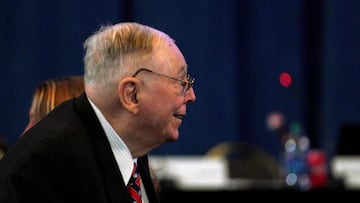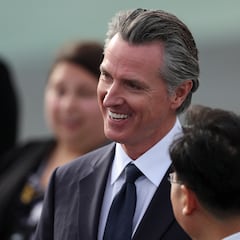What is Charlie Munger’s net worth and who are his heirs?
The man who was Berkshire Hathaway’s second-in-command to Warren Buffett died in hospital at the age of 99, leaving a fortune behind.


Charlie Munger, the influential vice-chair of Berkshire Hathaway and longtime investment partner of Warren Buffett, passed away on Tuesday at the age of 99. The investment group confirmed Munger’s death, marking the end of an era for one of the most successful partnerships in the world of finance. Munger played a pivotal role in the transformation of Berkshire Hathaway, contributing significantly to its investment strategies. His influence extended beyond being Buffett’s second-in-command, with Munger actively participating in investment decisions and often taking the lead in negotiations for major deals.
In a statement, Warren Buffett acknowledged Munger’s indispensable contributions.
“Berkshire Hathaway could not have been built to its present status without Charlie’s inspiration, wisdom, and participation.”
Charlie Munger final interview with CNBC:
— Thomas Chua (@SteadyCompound) November 29, 2023
Is there anything left on your bucket list?
Well... I am so old and weak compared to when I was 96 I no longer want to catch a 200 lbs tuna...
...I would have paid any amount to catch a 200 lbs tuna pic.twitter.com/u2fcW85AMk
Munger’s fortune and heirs
Charlie Munger’s net worth was estimated at $2.6 billion by Forbes, growing from $1.1 billion in 2014. His cautious outlook on the investment landscape, despite his and Berkshire’s successes, was evident in his belief that the opportunities they seized were unique to a particular time and set of circumstances.
Munger leaves behind a family that includes three children from his first marriage - Wendy Munger, Molly Munger, and the late Teddy Munger. His second marriage with Nancy Barry resulted in four children: Charles T. Munger Jr., Emilie Munger Ogden, Barry A. Munger, and Philip R. Munger. Munger is also survived by two stepchildren: William Harold Borthwick and David Borthwick.
Charlie Munger (1924-2023)
— Ramnath (@rmnth) November 29, 2023
What a wise man.
RIP 🙏 pic.twitter.com/SK66JLVONU
Munger’s journey to success
Born on 1 January 1924, in Omaha, Nebraska, Munger initially studied meteorology during his service in the army before graduating from Harvard Law School. He met Warren Buffett in 1959, and their collaboration led to Munger’s entry into the investment world. Munger’s own investment partnership, Wheeler, Munger & Company, boasted stellar returns, averaging 24.3% annually between 1962 and 1975.
Joining Berkshire Hathaway’s board in 1978, Munger played a crucial role in shaping the company’s investment philosophy. Buffett credited Munger with breaking his “cigar-butt habits” and guiding the company towards acquiring wonderful businesses at fair prices.
Highlight reel of Charlie Munger spitting one banger after another. pic.twitter.com/2JJonrqKCx
— Compound248 💰 Absolute Value (@compound248) November 29, 2023
What next for Berkshire Hathaway?
Related stories
With Munger’s passing, Berkshire Hathaway faces a significant leadership transition. The company, valued at nearly $800 billion, has been preparing for this moment for over a decade. Greg Abel, currently the vice-chair of Berkshire’s non-insurance unit, was identified by Munger as the successor to Buffett, as reported by the FT. Abel has been working closely with a team selected by Munger and Buffett, including several value investors sharing a similar approach to securities analysis.
Munger’s legacy extends beyond his vice-chair title; he was a driving force behind many of Berkshire’s successful investments. His passion for engineering, coupled with his keen business acumen, played a crucial role in shaping the company’s portfolio, including ventures such as the investment in Chinese carmaker BYD.

